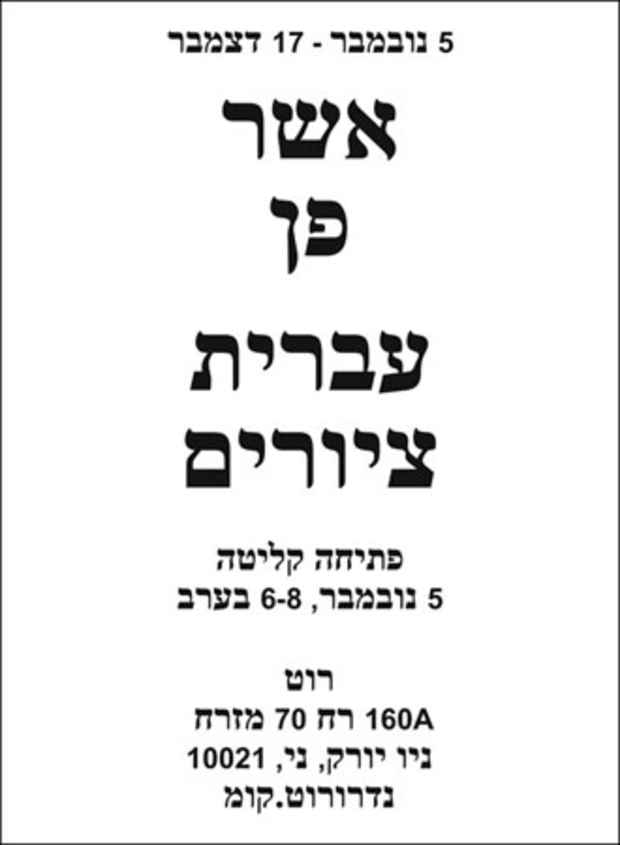Asher Penn "Hebrew Paintings"
Andrew Roth

This event has ended.
A couple of years ago my brother went on a trip to Israel. He brought me a book about an Israeli painter named Zita Weiss, a Czech holocaust survivor who lived in Haifa. All the paintings in the book were captioned in Hebrew as well as English. I had never seen any post-‘45 painting juxtaposed with the Hebrew: It was a foreign combo.
I know how to read Hebrew phonetically but never learned how to translate. I don’t know how to write it either. I don’t mind this situation: Sometimes seeing or hearing something and not knowing what it means can take the pressure off. I live in Chinatown, and there are signs everywhere in Chinese. Instead of being able to read the words I get to not know what they mean.
Painting is mysterious. The mind is connected to the hand is connected to the brush is connected to the canvas... What happens in that space? Infinite variations are possible. No matter what, it’s going to be different every time. I studied photography in college. With photography it feels like you’re working in the opposite direction to painting: the infinite variations are already out there: Your job is to frame them.
I like names and titles a lot. There are all these words and phrases that are part of language, and then someone decides to take one or two or three and turn the words into a kind of mascot: Ooga Booga, The Road, Curb Your Enthusiasm, Pulp Fiction, Nirvana. The words start getting used over and over again. People start developing associations with these words, as they extend beyond their original meaning. They absorb information and history and experience. The words become abstract.
When it comes to naming things I’m not particularly imaginative. My first instinct is to go for the descriptive. For example, a list of 100 names/titles translated from English to Hebrew, printed onto photo paper and adhered to 9 x 12 inch stretched-canvas, with mat medium: Hebrew Paintings. They look like painting. There are brush strokes. They’re on canvas. I’ll end up saying Hebrew Paintings enough times that I’ll tend to want to call everything that: a portfolio, a pamphlet, a collection of books. They all become Hebrew Paintings. Most of them don’t have any paintings in them. At this point it doesn’t matter anymore. Hebrew Paintings means something else: They’re all Hebrew Paintings.
–Asher Penn, New York, 2010
Media
Schedule
from November 05, 2010 to December 17, 2010
Tues-Fri 12-5pm